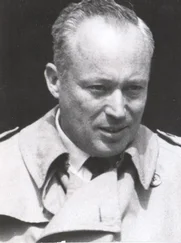Armageddon - Leon Uris
Здесь есть возможность читать онлайн «Armageddon - Leon Uris» весь текст электронной книги совершенно бесплатно (целиком полную версию без сокращений). В некоторых случаях можно слушать аудио, скачать через торрент в формате fb2 и присутствует краткое содержание. Жанр: Старинная литература, на английском языке. Описание произведения, (предисловие) а так же отзывы посетителей доступны на портале библиотеки ЛибКат.
- Название:Leon Uris
- Автор:
- Жанр:
- Год:неизвестен
- ISBN:нет данных
- Рейтинг книги:4 / 5. Голосов: 1
-
Избранное:Добавить в избранное
- Отзывы:
-
Ваша оценка:
- 80
- 1
- 2
- 3
- 4
- 5
Leon Uris: краткое содержание, описание и аннотация
Предлагаем к чтению аннотацию, описание, краткое содержание или предисловие (зависит от того, что написал сам автор книги «Leon Uris»). Если вы не нашли необходимую информацию о книге — напишите в комментариях, мы постараемся отыскать её.
Leon Uris — читать онлайн бесплатно полную книгу (весь текст) целиком
Ниже представлен текст книги, разбитый по страницам. Система сохранения места последней прочитанной страницы, позволяет с удобством читать онлайн бесплатно книгу «Leon Uris», без необходимости каждый раз заново искать на чём Вы остановились. Поставьте закладку, и сможете в любой момент перейти на страницу, на которой закончили чтение.
Интервал:
Закладка:
“In bedrock, the formula is waves and waves of men in a frontal assault. This is the bread and butter power play of the Red Army. Many a time the German would stack up Russian attackers like cord wood but they came on endlessly. The Russian Staff thinks little of expending regiments or entire divisions to spearhead a drive or clear a field of land mines. Human fodder, the disregard of the individual, makes the Red Army go.
“Interviews with German prisoners state how demoralizing a Russian assault can be. Even if the attack is beaten back, the memory of it becomes unforgettable.
“This ruthless use of the human as soldier is paralleled by the ruthless use of the Russian civilian population. The Soviet commanders will never hesitate to use a village, a town, or a city as a defensive position. As they retreat they will destroy the crops, machinery, homes in order to deny these to the Germans, but at the same time deny their own citizens the means to exist. Many’s the time the Red Army has pulled back leaving such deliberate destruction that the civilian population has no alternative but to starve to death. Thousands of towns were destroyed and hundreds of thousands of civilians were killed and millions more were moved to the interior of Russia as slave labor for suspicion of collaboration with the Germans.
“Russian defensive stubbornness is legend. The Russian will not be moved from a fixed position unless overwhelmed by the enemy. However, once a position is overrun, the Russian does not retreat in an orderly manner, he plunges back. The Russian has thousands of miles of land in which to fall back.
“Leningrad, even more than Stalingrad, is the prime example of Russian defense and ruthless disregard of a civilian population. Hitler shied away from a frontal assault on Leningrad and the bloody street fighting which would have to follow. Instead, he ordered a siege with the aid of Finnish troops in order to starve the city into submission. In the first six months an estimated half-million Russians died of cold and hunger. For the balance of the thirty-month siege, another half million met death. Yet, at no time did Leningrad intend to quit, and as the siege wore on, the city actually became stronger and stronger until they broke out.
“A line of credit must go to the women fighters who appear in every phase of the service including infantry, air corps, and tank corps.
“As the war progressed, the Red Army became stronger after the initial shocks. Top Russian commanders used superlative night movements and imaginative tactics. To compensate for the lack of motor transport, infantry was often moved on the back of tanks. In the winter when the poor Russian road system broke down and literally swamped German transport, the Russians used horses and sleighs to move men and equipment.
“One of the brilliant Russian improvisations was the building of bridges across lakes a foot under the water level. All work was done by night and when a breakout or attack was ordered, the Germans were confronted with the sight of tanks and infantry moving at them, apparently riding and running on the water.
“The Russian fights best at night. The partisan units wrought havoc. Using German uniforms and the cover of the land, these units could travel for days on a few slices of bread. They had a devastating effect on the overextended German supply lines.
“This has been a ghastly war; in fact, the most brutal ever fought between two civilized nations. German rape, loot, murder of prisoners, hatred of the people was everything Stalin promised the German would be. The Russians, however, matched atrocity with atrocity.
“Damage to cities, farms, livestock, industry is of astronomical proportion. The loss of Russian life, which both sides held so cheaply, is a likewise staggering total, perhaps ten million.
“German defeat grew inevitable. In the beginning there was tactical blundering by Hitler. Then Russian space and time and weather overcame them. Russian resources grew as German resources shrunk. New Russian armies trained far back of the lines were thrown at the Germans, who didn’t even know they existed.
“The new Red Army is superb. It is well-trained, -equipped and -generated. It continues its success on the basic tactic of the human battering ram. As German casualties mounted and equipment was permanently lost, Germany began to lose initiative. Germany had no way of shrinking the multithousand-mile front line, but instead had to thin it out.
“The winters had a crushing effect on the German. Of this, much has already been written from Napoleon’s time on.
“The Red Army is a powerhouse much changed from the early days. ITS PRESENCE IN EASTERN AND CENTRAL EUROPE IN THE POST WAR PERIOD WILL HAVE A PROMINENT IF NOT DECIDING FACTOR IN CARRYING OUT MOSCOW POLICY.”
“Did you get through the documents last night?” Hansen asked Sean the next morning.
“As much as I needed to see.”
“And did you reach a decision?”
“Hell yes. I reached it fifty times and changed my mind fifty times. What I really want, General Hansen, is to go home. I hate Germany and Germans. The prospect of the mission in Berlin fills me with despair ... utter despair.”
“What is the greater force, Sean? Love for your country or hatred of Germany and fear of Russia?”
Sean shook his head that he did not know.
“You are asking yourself, why me? Hell, I can’t explain the inequities of this. The captains and the kings depart and leave to you and me a mess to clean up. Bright young majors like you will go home and become bright young executives. We’ll be out here beating our heads against a wall ... and for it we will receive no understanding and no gratitude. But, some of us are going to have to do it anyhow. It is the miracle of the survival of our republic. Always, at the right moment, the right men seem to step forward.”
“I have no aspirations to being a martyr.”
“Then say no, and be on your way.”
“You know goddamned well I can’t say no, General. General Hansen, once in London you asked me if I would abide by my father’s decision in peace. I did and neither of us is sorry. Let me ask you the same thing now. Will you abide by his decision? Yesterday you challenged me to ask my father. All right, I’ll ask him.”
Hansen took off his specs and cleared his throat. The man before him was not happy, did not pretend to be. He had intentionally trapped him into a situation of honor. Yet, he was asking everything of Sean ... everything.
“As you know they are transferring dozens of squadrons to the Pacific Theater every day. I’ll call the Rhein/Main base and find out if you can hitch a ride. What’s the nearest Army airfield to your home?”
“Hamilton, in Marin County.”
“Go and see your parents. Our first contingent will be entering Berlin on the Fourth of July. When you return to Germany it will be either to go back to Rombaden and finish your command or it will be to come to Berlin with us for as long as we need you.”
“The Fourth of July? But, sir, even with good connections I won’t have much more than forty-eight hours at home ... I’ve been gone almost four years ...”
“That’s it, Sean. Forty-eight hours.”
Chapter Thirty-seven
“HEY, MAJOR O’SULLIVAN, TAKE a look.” Sean responded to the prodding of the navigator of the “Vigilant Virgin,” a combat-weary B-24. He unraveled himself from a makeshift bunk in the bomb bay and slipped into the flight deck between the pilots. The aircraft commander pointed out of his window.
Below, the towers of the Golden Gate Bridge poked up through a pall of grayish clouds. Beyond the bridge, the gleaming plaster and hills of San Francisco searched for the ever-elusive sun.
“The Golden Gate in ’48, the broad line in ’49,” someone said over the intercom.
Читать дальшеИнтервал:
Закладка:
Похожие книги на «Leon Uris»
Представляем Вашему вниманию похожие книги на «Leon Uris» списком для выбора. Мы отобрали схожую по названию и смыслу литературу в надежде предоставить читателям больше вариантов отыскать новые, интересные, ещё непрочитанные произведения.
Обсуждение, отзывы о книге «Leon Uris» и просто собственные мнения читателей. Оставьте ваши комментарии, напишите, что Вы думаете о произведении, его смысле или главных героях. Укажите что конкретно понравилось, а что нет, и почему Вы так считаете.











